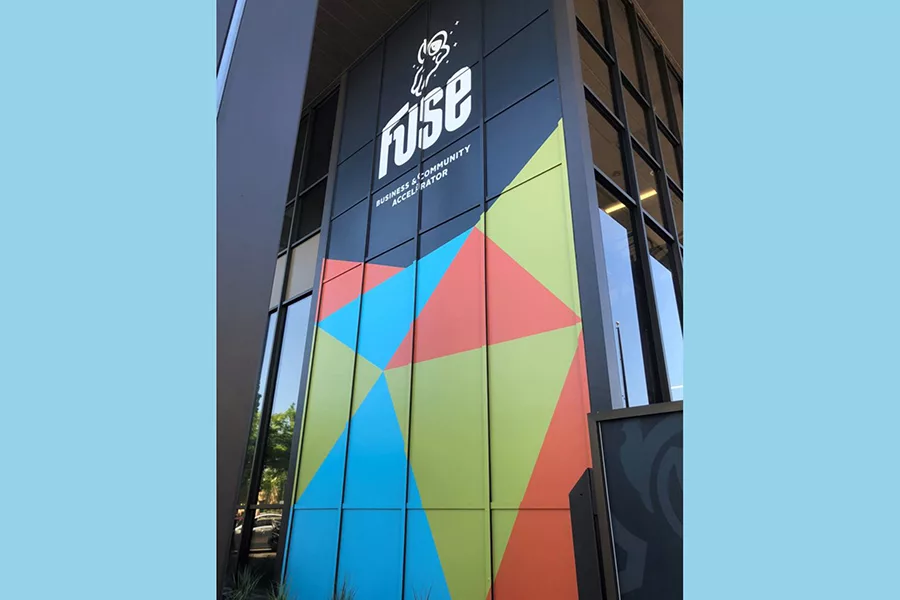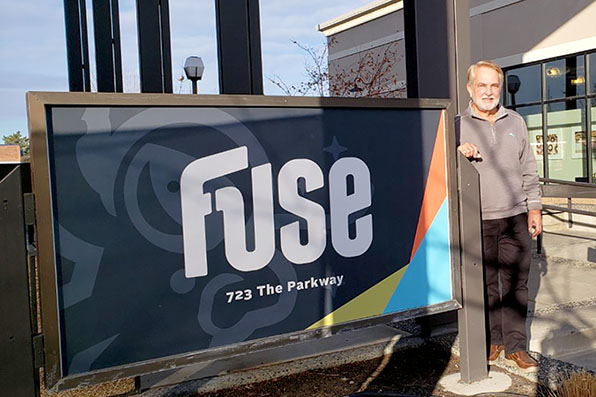
Home » Startup fund injects more than $1M into local businesses
Startup fund injects more than $1M into local businesses

March 15, 2024
A local startup accelerator called the Fuse Fund, made up of predominantly local investors, has invested in six companies local to the Tri-Cities area and has more to spend.
Fuse is a business and community accelerator in the Tri-Cities, established to help startups with resources, including the coworking space in the Richland Parkway.
The Fuse Fund began as a natural outgrowth of Fuse in 2019 as a way to connect startup companies to funding.
It’s the only startup fund focused on local businesses in the Tri-Cities, said Marty Conger, former CFO at Pacific Northwest National Laboratory, and the managing partner at Fuse Advisors.
 Marty Conger is restarting the push to raise money for Fuse Fund, an initiative of Richland’s Fuse SPC business incubator to invest in promising local businesses. The fund raised nearly $1.5 million of its $2 million goal but slowed efforts because of the pandemic.(TCAJOB file photo)
Marty Conger is restarting the push to raise money for Fuse Fund, an initiative of Richland’s Fuse SPC business incubator to invest in promising local businesses. The fund raised nearly $1.5 million of its $2 million goal but slowed efforts because of the pandemic.(TCAJOB file photo)He started Fuse Fund with the intention to fund startup companies that “ideally have a physical presence here in the Tri-Cities but more importantly are doing business here,” he said.
While the pandemic presented a brief hiccup to the fund’s progress, the Fuse Fund has successfully raised $2 million and invested 60% of that funding into six companies so far.
Conger raised funding from about 30 mostly local investors, he said. And while getting a return on their investment would be ideal, it’s also an altruistic cause.
“They are all interested in the Tri-Cities and seeing the Tri-Cities being a good place for startup businesses,” Conger said.
The Fuse Fund has played various roles for the startups, becoming a minority investor for half the companies. For the other half, Fuse Fund was their first investor.
Conger said even having one investor can be the difference for a startup to go out and secure further financing elsewhere.
There is still more funding available for startups today, Conger said.
The catch is that the startup needs to have a Tri-Cities connection, which means must be based in Benton or Franklin counties or conducting business in the area.
Once the Fuse Fund is exhausted, the investors on the group’s board can create another fund, but for now, they still have the ability to invest in several more startups.
Fuse Fund has invested in a variety of companies, and Conger emphasized that there is no line of business that is off limits. Local connections are less negotiable, however.
Fuse Fund has invested in Carbitex, Brook, STARS Technology Corp., LiveGrowBio and Innov8Ag.
The sixth company the Fuse Fund invested in has already failed but that’s the nature of startups, Conger said.
Fuse also works with businesses that aren’t funded.
“There are several other startups that we have been there for without investing in, and many are surprised when we say we’ll help you even if we don’t invest in you,” Conger said.
He encouraged local startups to get in touch if they want resources, help or if they are interested in applying for funding.
Conger was initially worried about having enough companies apply for funding, but this was not the case. So far about 20 companies requested it.
They must present their plans to the Fuse Fund Investment Committee.
“I’ve been pleasantly surprised that we’re finding good companies here that could use our help and are meeting our criteria of being local,” Conger said.
The board’s hope is that over the life of the fund, investors can triple their return, although realistically, most startups fail.
“It’s been a great journey so far; we’ve got some great investments, but it’s a tenuous path here to see them through to creating enough value,” Conger said.
The Fuse Fund Board is made up of Conger; Brett Spooner, the founder of Fuse; Ron Boninger, entrepreneur and past CEO of Carbitex; Meghan Rose, founder of Iron Mountain Management; and Jerry Cochran, a startup investor currently at PNNL, who recently was added to the board.
The Fuse Investment Committee consists of the board members and additional members Ken Arneson, entrepreneur and tech startup founder; Brian Thomas, former CFO of Washington River Protection Solutions; and the recent addition of Jonathan Cox, an agriculture tech company entrepreneur.
For more information, go to: fuse.fund.
Latest News Entrepreneur Startup Ecosystems
KEYWORDS March 2024
Related Articles




